On October 29…
“Stock prices have reached what looks like a permanently high plateau. I do not feel there will be soon if ever a 50 or 60 point break from present levels, such as (bears) have predicted. I expect to see the stock market a good deal higher within a few months.”
~ Irving Fisher, Ph.D. in Economics
12 Days Before Black Tuesday
===============================
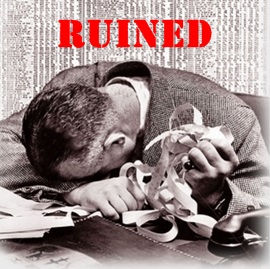
===============================
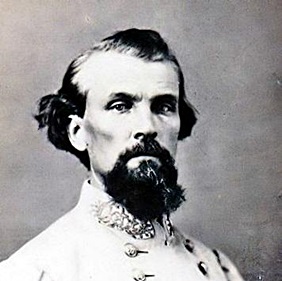
1877 – Nathan Bedford Forrest died from acute complications of diabetes at the age of 56.
He was a Confederate Army general during the Civil War, and though scholars generally respect Forrest as a military strategist, he has remained a controversial figure in Southern racial history, especially his leadership of the Ku Klux Klan.
In April 1864, in what has been called “one of the bleakest, saddest events of American military history,” troops under Forrest’s command massacred Union troops who had surrendered, most of them black soldiers, at the Battle of Fort Pillow.
Forrest was blamed for the massacre in the Union press and that news may have strengthened the North’s resolve to win the war.
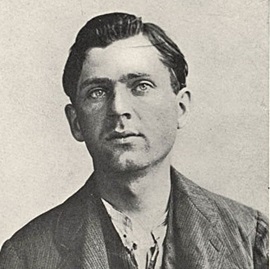
1901 – President William McKinley’s assassin, Leon Czolgosz, was electrocuted at Auburn Prison in New York.
His last words were, “I killed the President because he was the enemy of the good people – the good working people. I am not sorry for my crime.”
Czolgosz’s brother, Waldek, was in attendance at the execution. When he asked the warden for his brother’s body to be taken for proper burial, he was informed that he “would never be able to take it away” and that crowds of people would mob him.
The body was buried on prison grounds. Prison authorities poured sulfuric acid into Czolgosz’s coffin so that his body would disintegrate within twelve hours.
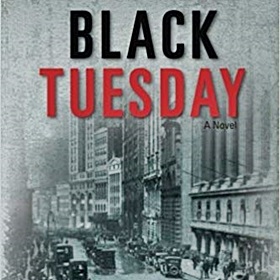
1929 – Black Tuesday: Stock prices collapsed on the New York Stock Exchange amid panic selling.
The crash had started on October 24 (“Black Thursday”) and continued until October 29 when share prices on the New York Stock Exchange totally collapsed.
In the first half hour, 3,259,000 shares were traded. $30 billion was lost. This was more than twice the U.S. national debt. Some stocks actually had no buyers at any price that day.
Aftermath: In 1930, 12 million people were out of work, 20,000 companies went bankrupt and around 23,000 people committed suicide.
By 1933, when the Depression reached its lowest point, some 15 million Americans were unemployed and nearly half the country’s banks had failed.
The Great Depression lasted from 1929 to 1939 and was the worst economic downturn in history.
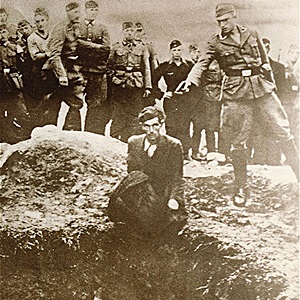
1941 – In the Kaunas Ghetto (Kaunas, Lithuania), over 9,000 Jews were executed by German occupiers at the Ninth Fort, a prison and way-station for prisoners being transported to labor camps.
Under the direction of “senior assault leader” Joachim Hamann, 2,007 Jewish men, 2,920 women, and 4,273 children were shot to death in a single day.
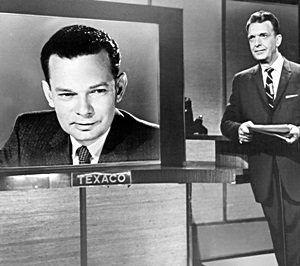
1956 – The Huntley-Brinkley Report premiered as NBC’s nightly TV newscast.
It was anchored by Chet Huntley in New York City, and David Brinkley in Washington, D.C. It succeeded the Camel News Caravan, anchored by John Cameron Swayze.
The Huntley-Brinkley Report ran for 15 minutes at its inception but expanded to 30 minutes on September 9, 1963, exactly a week after the CBS Evening News with Walter Cronkite did so.
The news program’s last broadcast came on July 31, 1970.
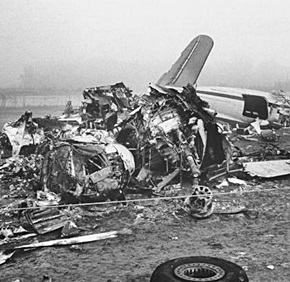
1960 – An airplane carrying the Cal Poly football team crashed on takeoff in Toledo, Ohio.
Of the 48 on board, 22 were killed, including both pilots and 16 players.
The C-46 aircraft took off from Toledo Express Airport on the return flight to San Luis Obispo, California, weighing approximately 2000 pounds more than its maximum certificated gross weight. The aircraft crashed during takeoff, caught fire and was destroyed.
The Civil Aeronautics Board concluded, “The accident was due to loss of control during a premature lift-off. Contributing factors were the overweight aircraft, weather conditions, and partial loss of power in the left engine.”
The pilot who made the decision to take off was flying on a license that had been revoked, but he was allowed to fly pending an appeal.
Following the crash, the Arctic-Pacific Company lost its certificate to charter airplanes.
Survivor Factoid: Among the survivors was quarterback Ted Tollner, who later served as head coach at the University of Southern California and San Diego State University.
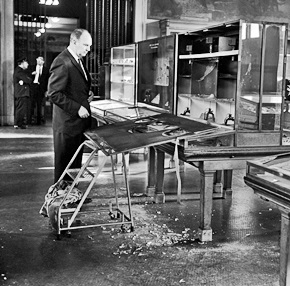
1964 – Climbing up the stone walls of the American Museum of Natural, thieves broke in through a window and stole priceless gems from the J.P. Morgan jewel collection: the Star of India sapphire, the DeLong Star ruby, the Eagle Diamond, and fistfuls of diamonds and emeralds.
The uninsured Star of India was recovered in a foot locker at a Miami bus station. Most of the other gems were also recovered, except the Eagle Diamond, which has since been believed to have been cut down into smaller stones.
Jack Murphy (a/k/a “Murf the Surf”) and both his accomplices, Alan Kuhn and Roger Clark, were convicted and served three years at Rikers Island.
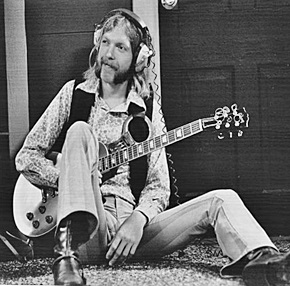
1971 – Musician Duane Allman was killed in a motorcycle crash at the age of 24.
Allman, a guitarist and founder of the Allman Brothers Band, was riding his Harley-Davidson Sportster motorcycle at high speed in Macon, GA. A flatbed truck carrying a lumber crane stopped suddenly at an intersection, forcing him to swerve sharply.
He struck either the back of the truck or the ball on the lumber crane and was thrown from the motorcycle, which landed on top of him and skidded another 90 feet with him pinned underneath it, crushing his internal organs.
He was alive when he was taken to a hospital, but despite immediate medical treatment, he died several hours later from massive internal injuries.
As a member of the Allman Brothers Band, he is best remembered for the classic At Fillmore East (considered by some critics to be one of the greatest live albums in rock music history) and Eat A Peach albums.
He also contributed greatly to the 1970 album Layla and Other Assorted Love Songs, by Derek and the Dominos.
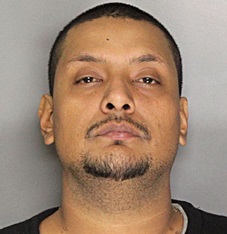
1994 – Francisco Martin Duran fired over two dozen shots at the White House.
Dressed in a trench coat, Duran approached the fence overlooking the north lawn of the White House and fired a SKS semi-automatic rifle (at a group of men wearing dark business suits on the White House lawn.
Secret Service agents immediately began running across the lawn, with their guns drawn, when citizens Harry Rakosky, Ken Davis, and Robert Haines tackled Duran and pinned his arms until he could be subdued.
The incident came just six weeks after Frank Eugene Corder crashed a Cessna into the White House south lawn and prompted debate about closing off traffic on that area of Pennsylvania Avenue.
Duran pleaded not guilty and mounted an insanity defense, claiming that he was … are you ready for this one? … trying to save the world by destroying an alien “mist”, connected by an umbilical cord to an alien in the Colorado mountains.
Prosecutors stated he was faking insanity and called more than 60 witnesses to testify that Duran hated government in general and President Bill Clinton in particular.
The jury rejected the insanity defense and convicted Duran of attempting to assassinate Clinton and sentenced him to 40 years in prison.
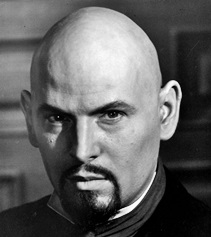
1997 – Anton LaVey died of pulmonary edema at the age of 67.
He was the founder of the Church of Satan and wrote several books on the subject of Satanism. Although some consider him to be the “most evil man in the world,” he was a “showman” who created a myth surrounding his life although it was later learned most of the stories about him had been false.
Idle Thought: In other words, his death was no huge loss for society.

1998 – Space Shuttle Discovery blasted off on STS-95 from Kennedy Space Center in Florida.
It was the 25th flight of Discovery and the 92nd mission flown since the start of the Space Shuttle program in April 1981.
But that’s not what it really noteworthy.
77-year-old U.S. Senator John Glenn was on board, making him the oldest person to go into space. He had been the first American to orbit the Earth, circling it three times in 1962 on board Friendship 7.
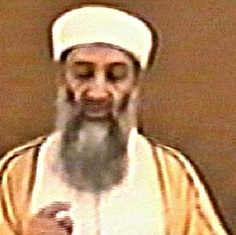
2004 – Osama bin Laden, in a videotaped statement, directly admitted for the first time that he had ordered the Sept. 11 attacks.
Al Jazeera network broadcast excerpts bin Laden addressing the people of the United States. In the video, he accepted responsibility for the September 11 attacks, condemned the Bush government’s response to those attacks, and presented those attacks as part of a campaign of revenge and deterrence motivated by his witnessing of the destruction in the Lebanese Civil War in 1982.
News analysts speculated that the release of the video was timed to influence the 2004 U.S. presidential election, which would take place four days later.
President George Bush, locked in a tight reelection race against Senator John Kerry, responded within hours.
“Let me make this very clear: Americans will not be intimidated or influenced by an enemy of our country. I’m sure Senator Kerry agrees with this. I also want to say to the American people that we’re at war with these terrorists and I am confident that we will prevail.”
Kerry also responded to the videotape.
“As Americans, we are absolutely united in our determination to hunt down and destroy Osama bin Laden and the terrorists. They are barbarians, and I will stop at absolutely nothing to hunt down, capture or kill the terrorists wherever they are, whatever it takes. Period.”
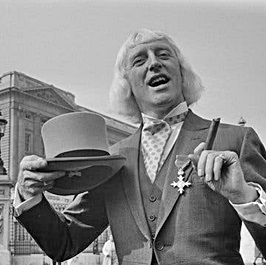
2011 – Jimmy Savile died at the of 84.
A British radio personality who hosted several BBC shows including Top of The Pops, he raised an estimated millions for charities and, during his lifetime, was widely praised for his personal qualities and as a fundraiser.
However…
After his death, hundreds of allegations of sexual abuse were made against him, leading the police to conclude that Savile had been a predatory sex offenders – possibly one of Britain’s most prolific.
In June 2014, UK Secretary of State for Health Jeremy Hunt delivered a public apology in the House of Commons to the patients of the National Health Service abused by Savile.
“Savile was a callous, opportunistic, wicked predator who abused and raped individuals, many of them patients and young people, who expected and had a right to expect to be safe. His actions span five decades – from the 1960s to 2010. As a nation at that time we held Savile in our affection as a somewhat eccentric national treasure with a strong commitment to charitable causes. In reality he was a sickening and prolific sexual abuser who repeatedly exploited the trust of a nation for his own vile purposes.”
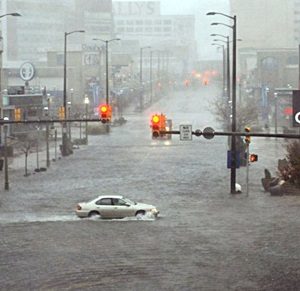
2012 – Hurricane Sandy hit the east coast of the United States, killing 148 directly and 138 indirectly.
The hurricane affected 24 states, including the entire eastern seaboard from Florida to Maine and west across the Appalachian Mountains to Michigan and Wisconsin, with particularly severe damage in New Jersey and New York.
Its storm surge hit New York City on October 29, flooding streets, tunnels and subway lines and cutting power in and around the city.
Damage in the United States amounted to $65 billion.
Compiled by Ray Lemire ©2019 RayLemire.com / Streamingoldies.com. All Rights Reserved.